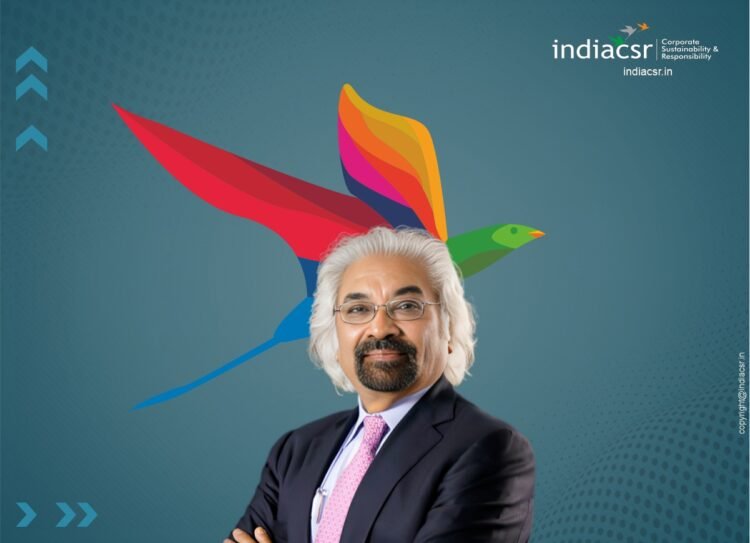Words Sam Pitroda
For the first time in history, all 8 bn people on our planet are essentially connected with super-speed networks of voice, data and video. This has transformed government processes, businesses and personal lives in a way never imagined before. It has transformed products, services and financial systems to a point we need a totally new approach and thinking to understand, appreciate and expand our economies.
So, do we use hyper-connectivity to do the same things we have been doing? Or do we do things we have never done before to take humanity and economies to the next level?
The first tech revolution started with the invention of transistor in 1947. It ended with internet, smartphones and applications around 2020 when the pandemic put our world on a long pause. It was a message from Nature that we’re all interconnected, interrelated and interdependent in the world. It also exposed inequality and injustice to the poor and marginalised, and economic migrants across the globe. It forced people to look inward and ask fundamental questions about life, livelihoods, relationships, community, work, business, globalisation, government.
Unfortunately, we still feel that huge stimuli and relief packages will bring us back on track. But debt in every country has increased substantially, with the financial burden shifting to the next generation.
Today, the six largest tech companies – Microsoft, Apple, Nvidia, Google, Amazon and Meta – without any traditional production infrastructure, are worth $15 tn. In this new reality, businesses are valued in billions without any products or revenues. How do we explain all this?
Global income inequality, visible in vast disparities in earnings and wealth distribution, has increased in an era of rapid tech and economic growth.
AI-related new technologies will further exacerbate the situation. The chasm between the affluent and people at large continues to widen posing complex social cohesion, economic instability, political polarisation, potential violence and unsustainable development that require urgent innovative, multi-prong strategies, policies and programmes.
Today’s model optimises only shareholder value, not stakeholder value where labour, supplier and community are at the core for optimisation of human development.
According to Oxfam, since 2020, 5 bn people have become poorer, while the world’s five richest men have more than doubled their fortune at the rate of $14 mn an hour. Billionaires are $3.3 tn richer than they were in 2020.
The richest 1% own 43% of all global financial assets. India is no exception.
India’s top 40 richest own more wealth than over 700 mn people.
This disparity is visible in our streets, shops, farms, factories and villages. Reasons for income inequality include a corporate attitude towards labour wages, gender inequality, tax loopholes, gov licensing, incentives, monopolies, financial engineering, globalisation and a business-politics nexus. This has given rise to a new type of colonisation of the old MNC, East India Company variety.
This model optimises only shareholder value, as opposed to stakeholder value where labour, supplier and community are at the core for the optimisation of human development. Business schools also teach more about ‘extracting values rather than creating values’ through optimisation of productivity, efficiency, cost and capital to ultimately deliver and reward maximum profits.
Today’s emphasis is on centralised management with command and control, as opposed to decentralisation with cooperation, collaboration and cocreation. The present model is also brd on a top-down approach with the hope of ‘trickle down’, something that hasn’t materialised. As a result, a few are super-busy, and most have nothing meaningful to do.
There is another organisational architecture followed by cooperatives in which shareholding isn’t just with investors but with workers and producers. Milk cooperatives are an excellent example of this. Mohandas Gandhi proposed trusteeship brd on the principle that wealth and resources aren’t owned by individuals, but are held in trust for the benefit of all members of society.
Cooperatives follow an organisational architecture in which shareholding isn’t just with investors but with workers and producers. Milk cooperatives are an excellent example.
The idea of trusteeship has not received due recognition in capitalist systems, primarily because it runs counter to its traditional focus on maximising profits for shareholders. Vinoba Bhave’s Bhoodan movement was one such idea and experiment.
Today, we live in an economy of surplus, not scarcity. We can produce anything, but wind up producing only for those who can afford to buy, not for people who need it. The world spends $2 tn a year on the military-industrial complex while knowing we can eliminate hunger for $200 bn a year. The best brains are busy solving problems of the rich who don’t have problems to solve. As a result, problems of the poor don’t get the needed talent. Tech that’s supposed to connect is dividing us through amplification of misinformation and hate on social media.
All of this undermines social mobility, stifles human potential, and fosters a sense of injustice and resentment among marginalised communities. There is a new world in the making. It’s difficult to explain or sustain our future with old economic theories related to GDP, GNP, per-capita income, trade deficit, capital investments, forex reserve, employment, etc.
The old model doesn’t make sense any more. We need to shed the colonial mindset that only focuses on profit and power play. We need new economic thinking on equity, inclusion, justice and sustainability.
About the Author: Sam Pitroda is former adviser to Prime Minister of India.
Disclaimer: The opinions expressed in this article are that of the authors only. The facts and opinions expressed here do not reflect the views of indiacsr.in
The article is first appeared in Economic Times.





